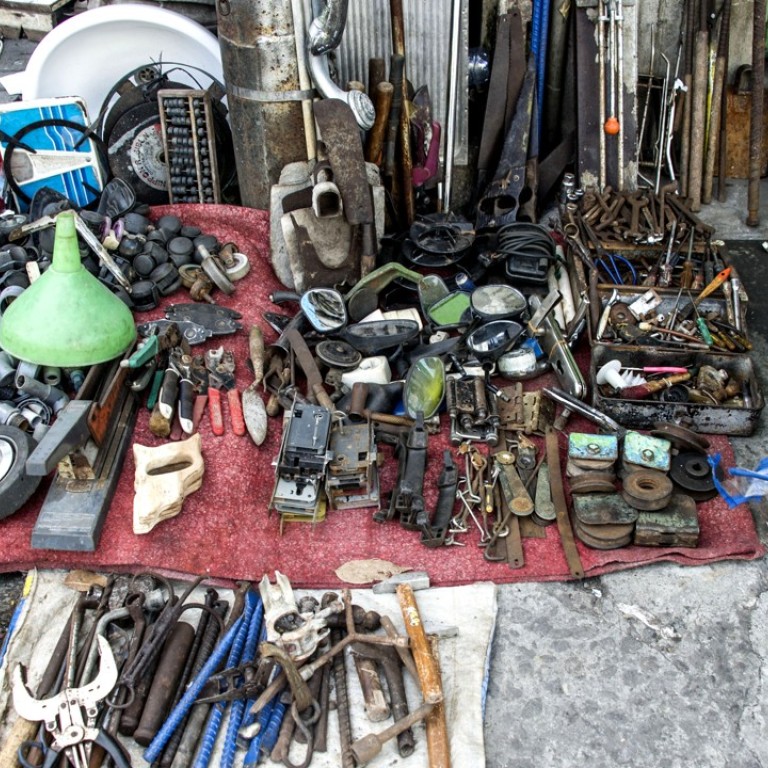
A step in the dark: Jakarta seeks order for its crazy pavements
Pedestrians in the Indonesian capital run a gauntlet of gaping potholes, wayward noodle stands and lecherous men – if they can find a place to walk in the first place. But change is afoot: welcome to Orderly Pavement Month
As his company of police officers assembles for the morning muster in West Jakarta, falling into 27 rows of roughly eight men deep, Budhy Novian, chief of law enforcement for Jakarta’s municipal police, considers the day ahead.
Soon, Novian, 43, will climb into a Ford sport utility vehicle and join a motorcade of about two-dozen police vans, flatbed trucks, tow trucks and cruisers on patrol for shops and vendors encroaching on the city’s scare public space. But after a month, the show of force seems little more than keeping the ocean back with a broom. The futility is beginning to show.
“If we put a police officer there, full time, the area will stay clear,” Novian explains.
“As soon as we go away, they will be right back.”
Welcome to Orderly Pavement Month, thought to be the capital’s first sustained effort at laying claim to its meagre bits of common space all in an effort to make one of the more congested and least livable cities just a little more pleasant.
Since late July, the dragnet, which wrapped up on Friday, and was undertaken by local and national police has snared 8,000 violators, confiscating noodle stands, gas canisters and other equipment which the owner can get back for a small fine.
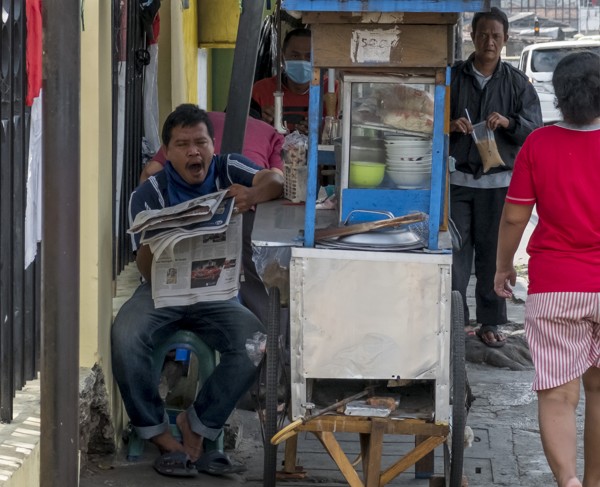
What’s at stake is the lion’s share of some of the city’s miserly 400km of pavement – a tiny network for a city thought to be home to some 10 million and sporting more than 7,000km of roads.
But what lies beneath all the piles of lumber, and furniture or makeshift food stalls seems hardly worth the effort. Pavements here often resemble little more than decaying bits of concrete and uneven bricks. Pedestrians navigating the walkways at times must sidestep gaping holes that plunge into fetid darkness. Little wonder few venture out for a leisurely stroll here, says activist Alfred Sitorus.
“We don’t have a culture of walking,” says the founder of the Pedestrian Coalition.
But that may be about to change.
Indonesia was supposed to embrace freedom. What happened?
Jakarta’s government has boosted by one third the amount it has earmarked to build walkways this year. The aim is to weave 2,600km of footpaths over the coming years linking train stations to offices and bus ways in a bid to keep commuters from hauling out their smartphone and summoning a motorcycle taxi once their bus or train from the suburbs pulls into the station. That will take time. In a city that is already bursting at the seams and burdened with poor planning, building new pavements can be expensive. It costs HK$3,000 to build 1 metre of pavement, Sitorus says.
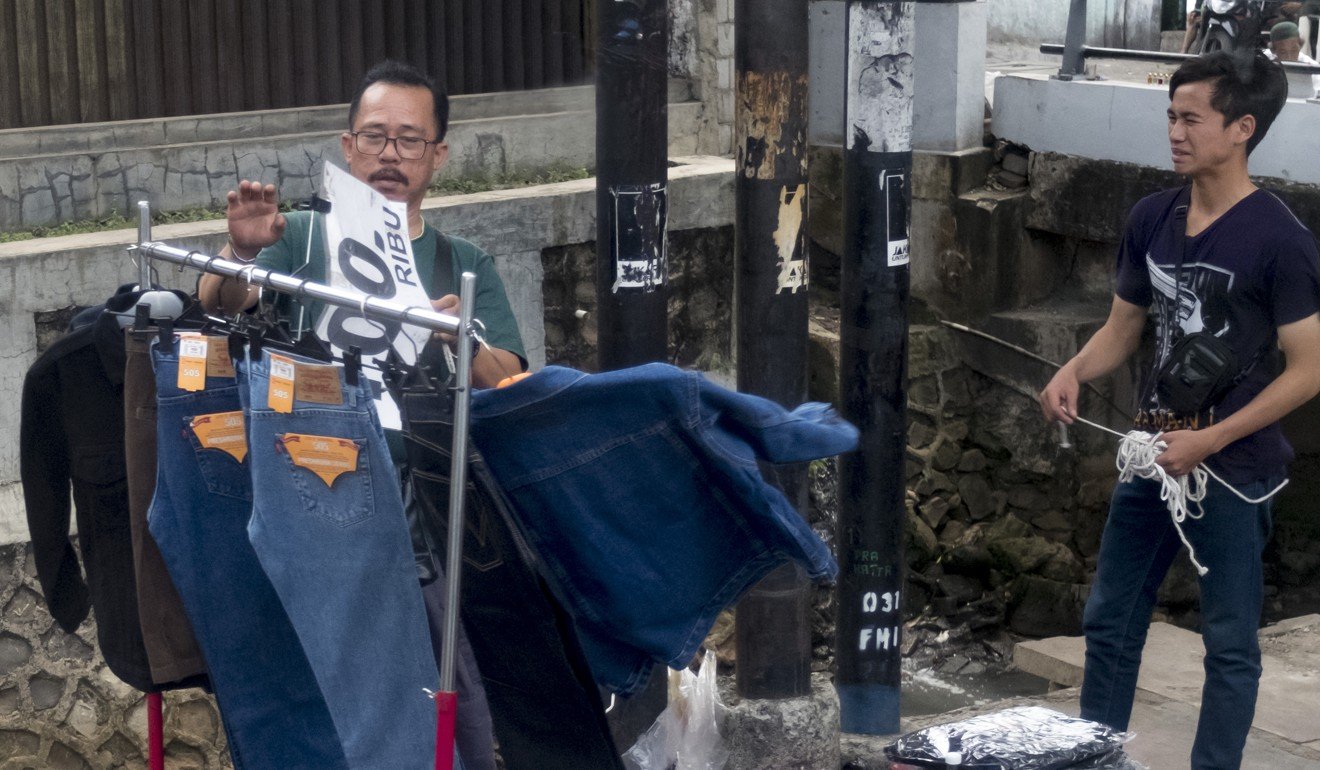
Even so, Sitorus argues that habits can change. Back in 2001, he was behind an effort to block off the city’s busiest streets on Sundays to motorised traffic. Known as Car Free Day, the effort nearly stalled amid howls of protest from motorists. But once the city made it a weekly fixture a decade later it was an institution, attracting buskers, cyclists, peddlers and of course pedestrians. Some 200,000 attend on any given Sunday.
“We had 1,000 people on the first day. We had to bus people in. No one would come,” Sitorus recalls.
Encouraging more residents to park their scooters or cars at home and use public transit or walk hasn’t come a moment too soon. This city is beginning to choke on air pollution as upwards of 1,000 new cars take to the roads every month. The World Health Organisation said last month Central Jakarta enjoyed only 20 days of air that was safe to breathe during the first half of the year.
“Car Free Day has raised awareness that you can leave your car at home. You don’t always need it,” says Sitorus.
How war over an aphrodisiac made a multicultural Indonesia
Before Jakarta becomes a pedestrian nirvana, it will need to do something about its obnoxious men. Instances of sexual harassment and violence are soaring. Women here say they routinely suffer catcalls, groping and worse.
Last year reports of sexual violence surged nearly 9 per cent to almost 1,400, according to the National Commission on Violence Against Women. Holaback! Jakarta, an NGO, which runs a website documenting survivors’ stories and details of the assault they suffered, has recorded 170 instances of abuse in Jakarta over the past 18 months. Most of those have been logged recently as the issue gains currency among residents.
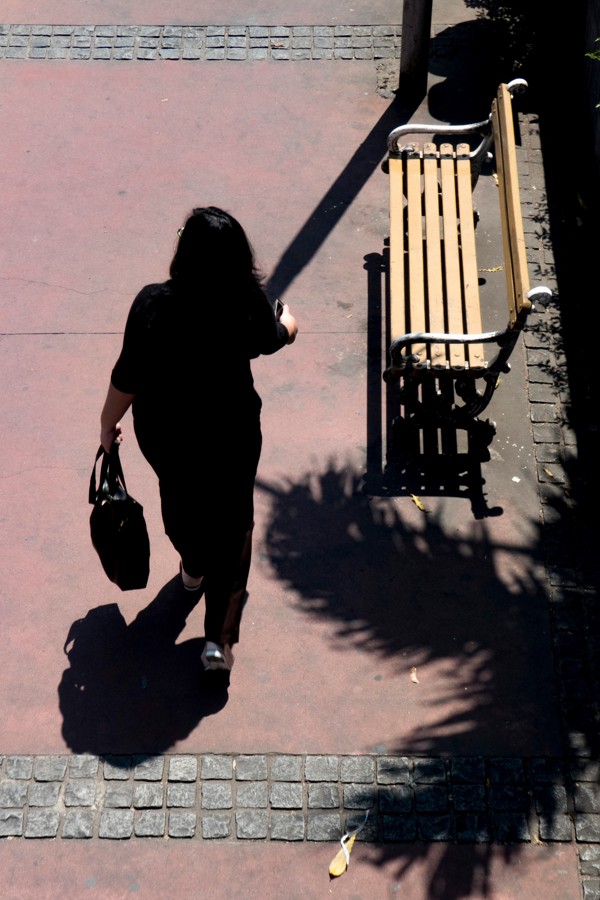
Vivi Restuviani, one of the group’s Jakarta organisers, says following an attack in Semarang, in Central Java, she stopped walking alone for months. Now she avoids certain areas of the city such as the Kemang entertainment district.
“It affects you,” Restuviani says of the harassment. “Sure you don’t want to go places sometimes if you don’t have to.”
“Catcalls like ‘hey beautiful’ make you feel you don’t belong there. So you don’t want to go.”
And then there are the poor, who sell smartphone cases or busk or sleep in public spaces because they have nowhere else to go. Every year there are more of them. After Ramadan an estimated 80,000 migrate to Jakarta from villages in search of work, helping triple the population of the greater metropolitan area to more than 28 million, on a tiny parcel of land that accounts for 0.3 per cent of the country.
How Malaysia’s dogs became political animals
Clearing them away in favour of spandex wearing cyclists and commuters risks backfiring. A similar campaign to convert into a park the notorious Kalibata slum in the city’s north, which was a byword for gangs and prostitution, fell flat when opponents emphasised that it was the poor who had to move in favour of skateboarding kids. The project’s main proponent was the city’s then reformist governor, Basuki Purnama, who not only lost re-election by a landslide, but is now in jail for insulting the Koran.
“I didn’t know the police would be coming,” says Mahmud, a carpenter who only gave one name as his staff hurriedly moved coffee tables and chairs off the pavement during Novian’s raid.
“Yes you had to,” Novian insists. “It was on television.”
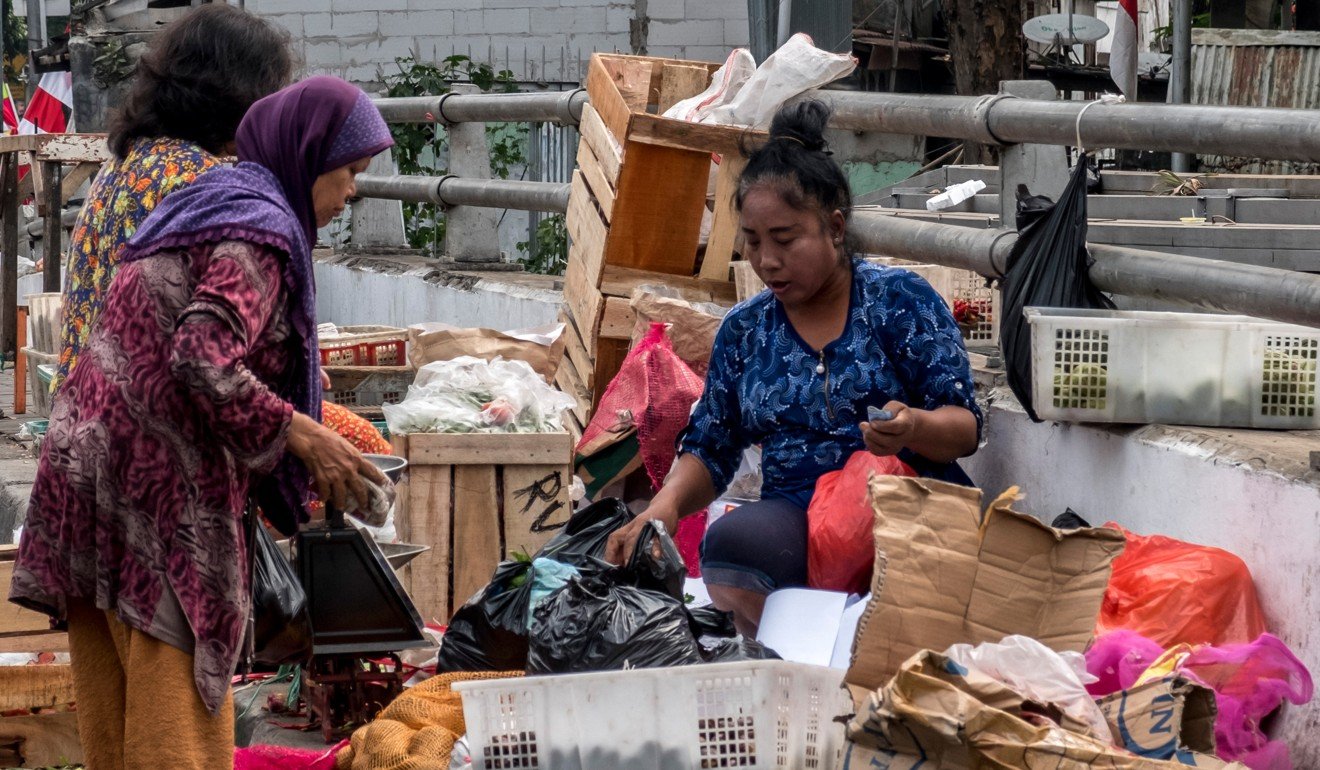
As it happened, nothing of Mahmud’s was carted away. Novian says he warns merchants and only confiscates property of serial offenders. On this day, the flat bed truck in the convoy resembled more of a rubbish collection service. Young officers piled it high with a dozen car and motorcycle tyres, bamboo poles, half an oil drum, street stall banners advertising dishes such as catfish and an old refrigerator with the door missing.
“Most of them got away before we got here,” says one officer ruefully, who didn’t want to give his name.
“Yesterday was better. We were taking scooters and cars. We were taking everything!”
Munching through a bowl of chicken, noodles and greens, Adi Rafiansa surveyed the forlorn bits of string that had held aloft a piece of tarpaulin that Novian’s men had carted away. The corner was a popular redoubt for motorcycle taxi drivers and the tarp had provided some shade for them during down periods.
That day’s raid was the second time in six months the police came, Rafiansa says. Without looking up from his noodles, he says he doubts the drivers will be deterred.
“They’ll be back.”

